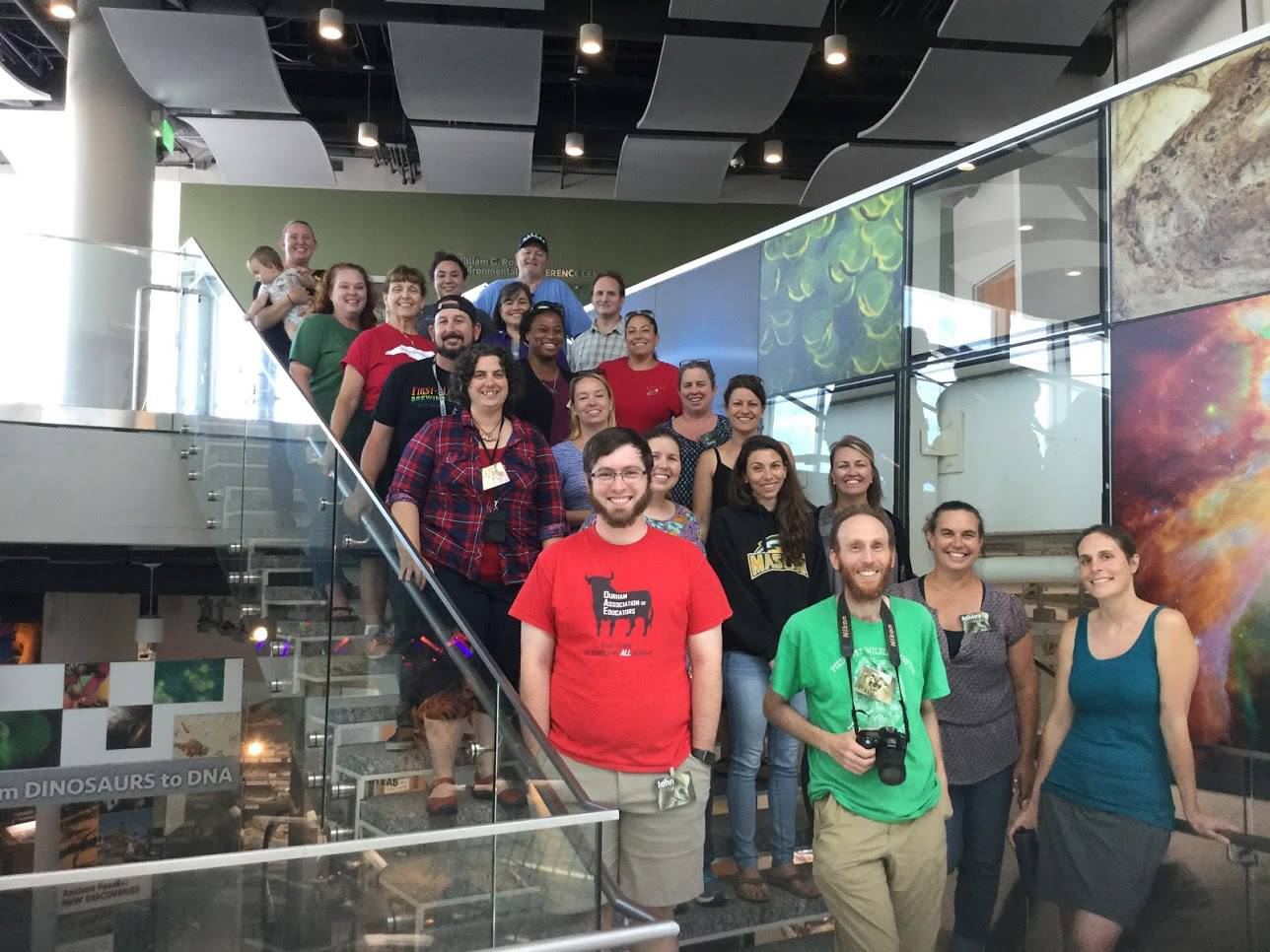
Workshop Group Photo
A workshop entitled “Drawers, Jars and Databases: Teaching the Hidden Science of Natural History Museums” was held July 9-11, 2018 in Raleigh, North Carolina. This workshop was a collaborative effort involving the National Science Foundation, North Carolina Museum of Natural Sciences (NCMNS), Prairie Ridge Ecostation, Integrated Digitized Biocollections (iDigBio), MicroFungi Collections Consortium, Florida Museum of Natural History, University of Florida, and North Carolina State University. Sixteen teachers were provided with an opportunity to participate in hands-on field and collections-based activities and were introduced to free, online resources that use specimen collections and digitized data.
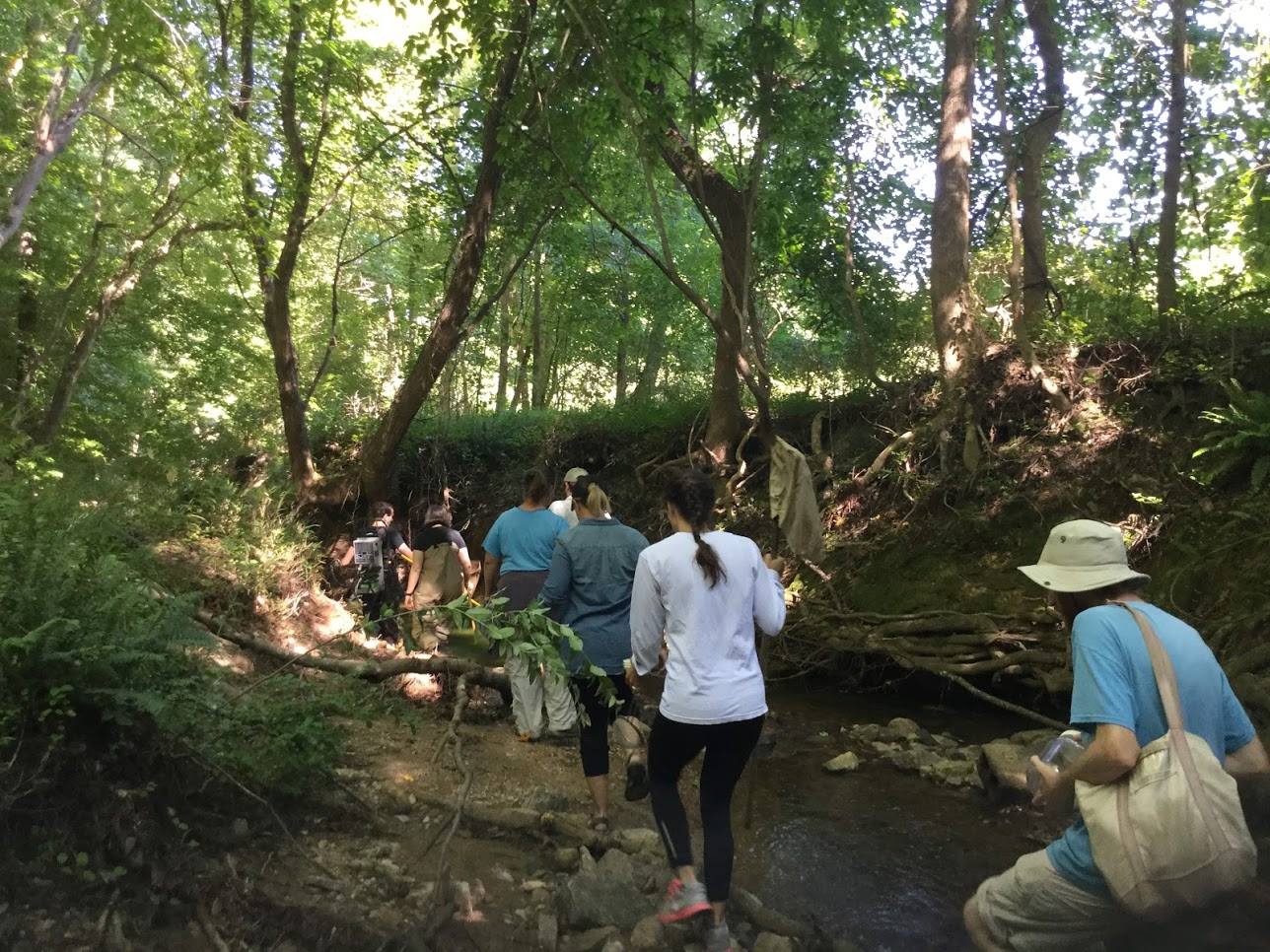
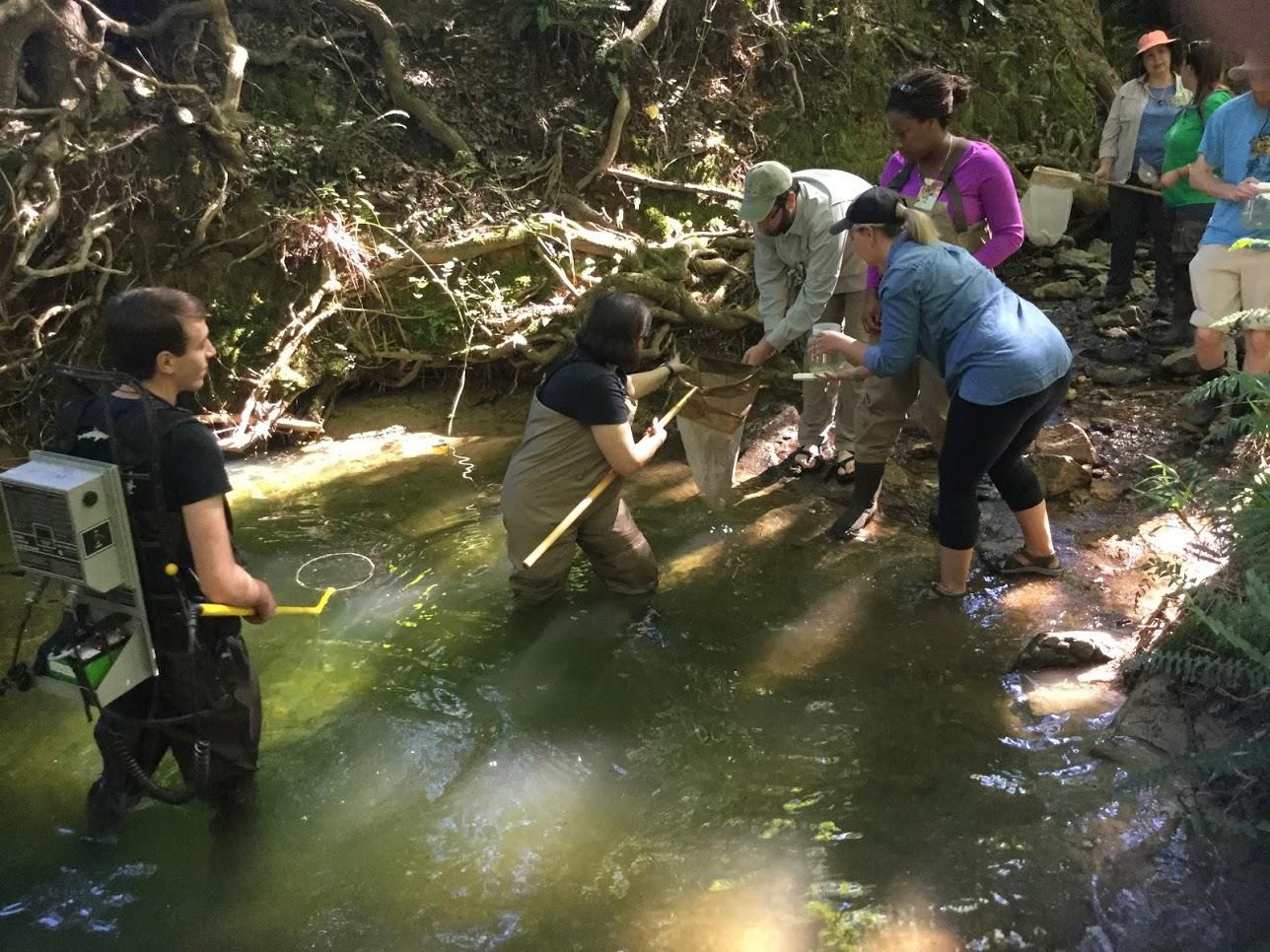
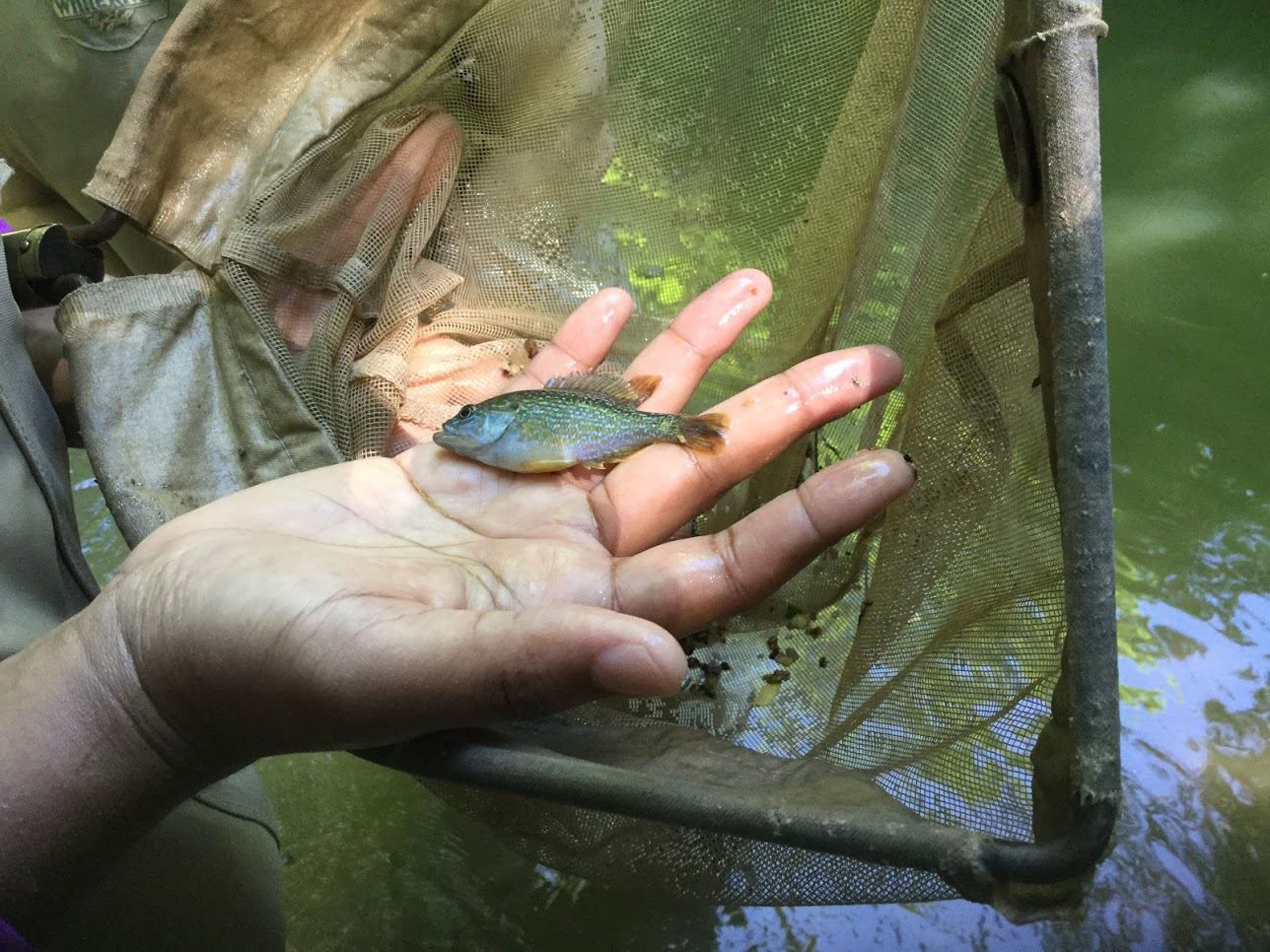
We 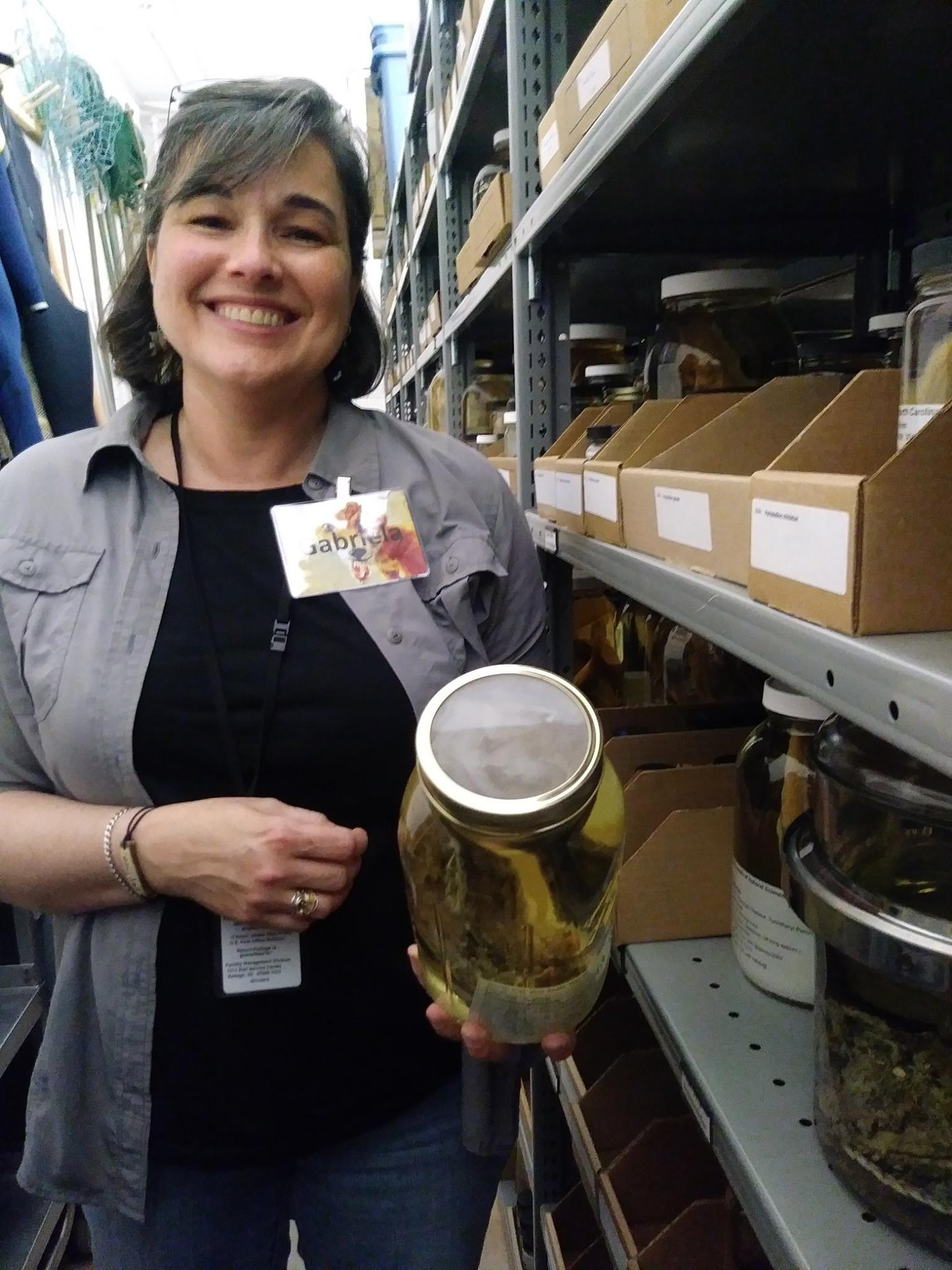 kicked the three-day workshop off with introductions and goal setting, followed by field-based activities in the creek at the Prairie Ridge Ecostation led by the amazing staff from the North Carolina Museum of Natural Sciences. Participants learned about different methods of collecting fish and aquatic invertebrates and the importance of taking accurate and detailed field notes. After a few hours in the creek, we returned to the field station’s outdoor classroom to learn about sorting specimens, using a dichotomous key, and creating labels.
kicked the three-day workshop off with introductions and goal setting, followed by field-based activities in the creek at the Prairie Ridge Ecostation led by the amazing staff from the North Carolina Museum of Natural Sciences. Participants learned about different methods of collecting fish and aquatic invertebrates and the importance of taking accurate and detailed field notes. After a few hours in the creek, we returned to the field station’s outdoor classroom to learn about sorting specimens, using a dichotomous key, and creating labels.
After a catered lunch, the workshop moved to a conference room generously shared by the Division of Air Quality where participants learned about digitization, collections data curation, online data portals, and museum-based citizen science projects through a series of short presentations given by museum staff and iDigBio graduate students. After the presentations, we conducted a hands-on activity exploring the iDigBio portal. The first day concluded with a tour of the NCMNS Fish Collection.
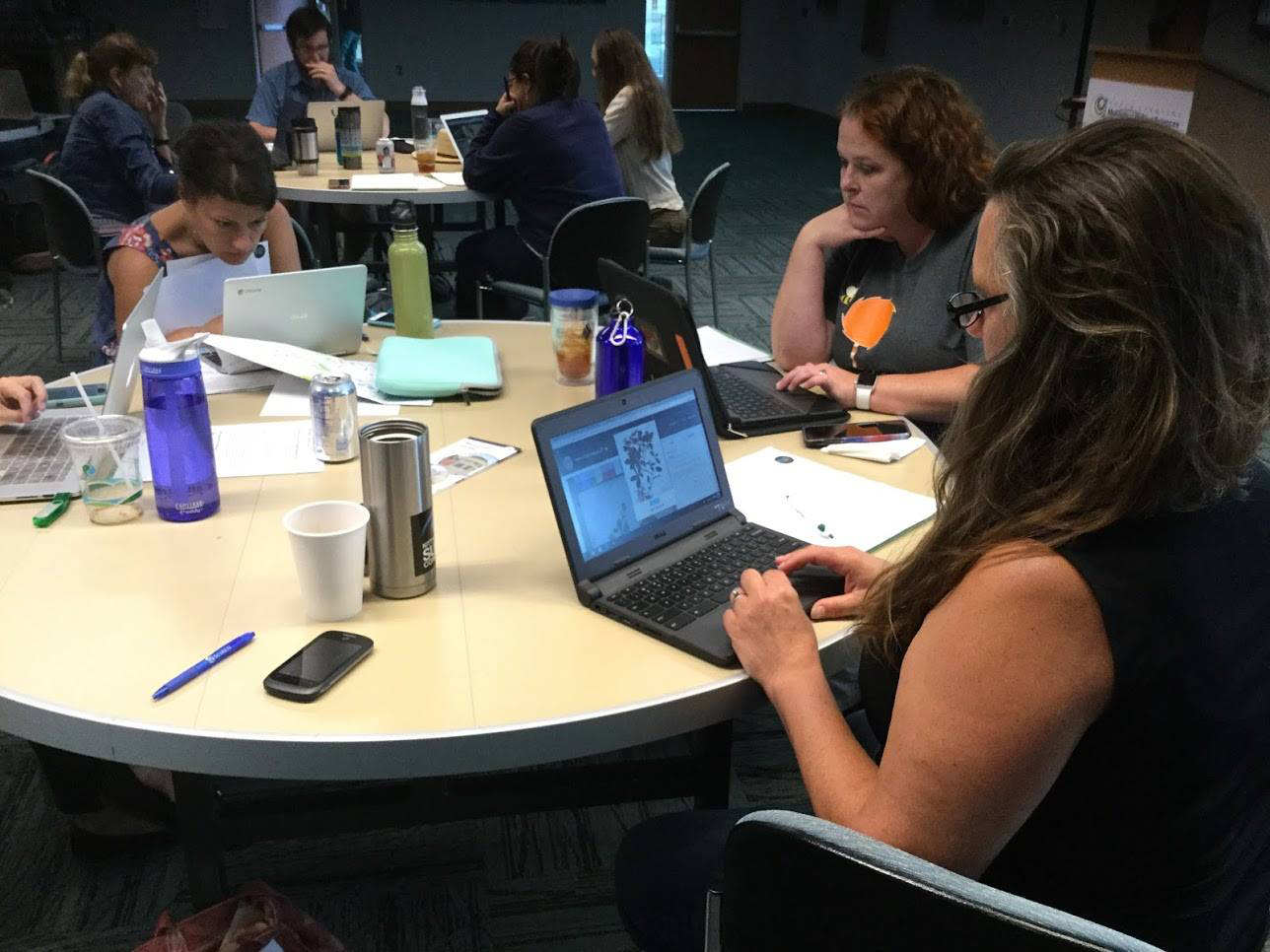 The morning of day two consisted of tours of bird and mammal collections at the NCMNS followed by a tour of the museum’s public collection, the Naturalist center. After lunch, we had more hands-on activities with Notes from Nature and the iDigBio Portal and presentations about CitSciScribe and the Mycoflora Project. Day two concluded with time for participants to work on incorporating what they learned about collections into their classrooms and curricula.
The morning of day two consisted of tours of bird and mammal collections at the NCMNS followed by a tour of the museum’s public collection, the Naturalist center. After lunch, we had more hands-on activities with Notes from Nature and the iDigBio Portal and presentations about CitSciScribe and the Mycoflora Project. Day two concluded with time for participants to work on incorporating what they learned about collections into their classrooms and curricula.
On the morning of the third and final day, teachers visited research collections at the Larry F. Grand Mycological Herbarium, Insect Museum, and Vascular Plant Herbarium at North Carolina State University. We returned to NCMNS for lunch and to work on lesson plans to incorporate collections-based educational resources into their classrooms. Teachers created informal posters to share their ideas and receive feedback from the group. The workshop activities concluded with a gallery walk where each participant had the opportunity to stand at their poster and present their lesson ideas. Everyone provided feedback for the lessons by adding post-it notes to each poster. The session was broadcast by Kevin Love using Facebook Live. After the gallery walk, there was a group reflection to revisit goals established at the beginning of the workshop. Participants were encouraged to continue engaging with the workshop facilitators and provide updates on their progress towards developing and implementing their fantastic and engaging educational ideas!
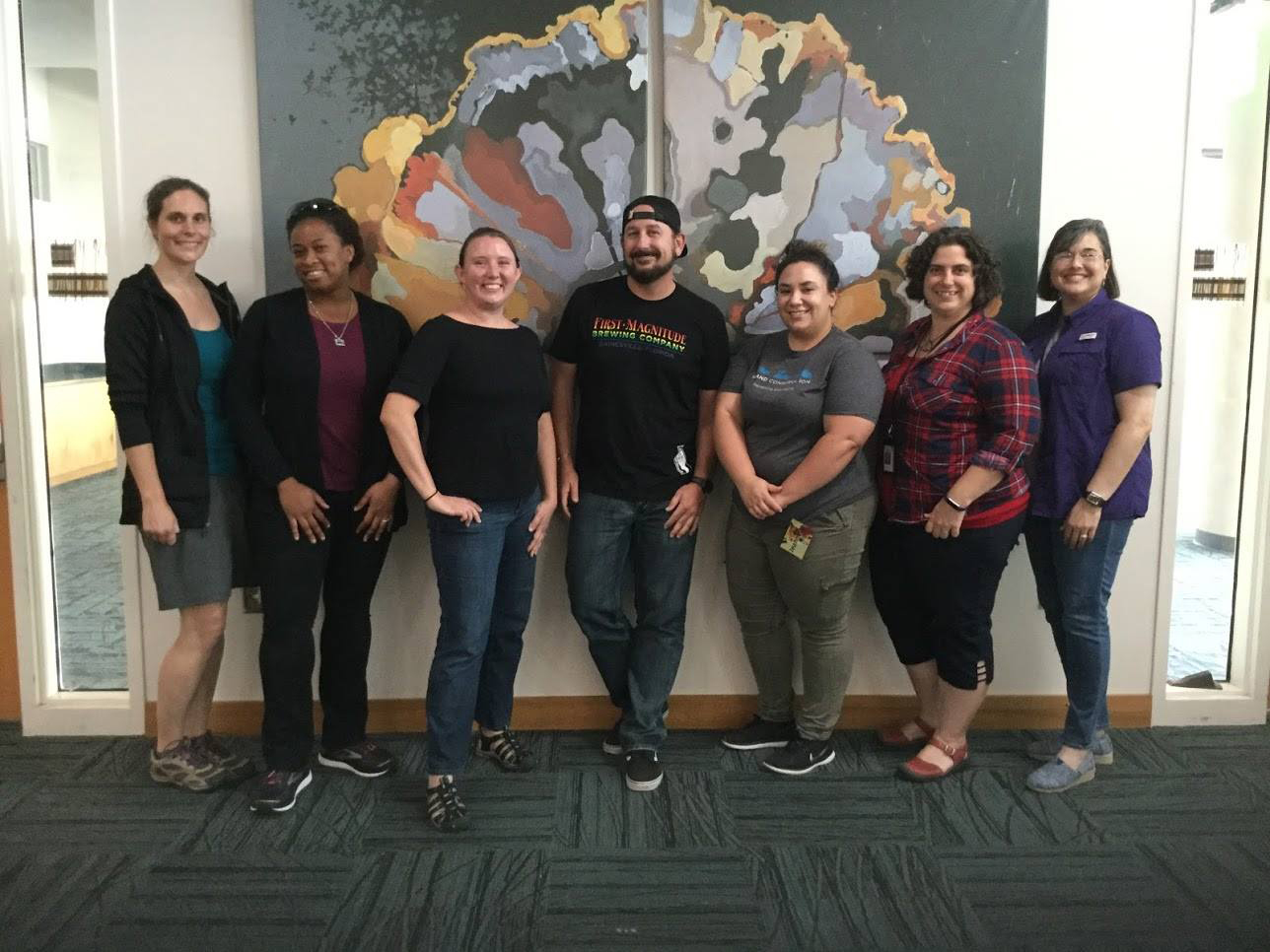
Workshop Planning Team
A HUGE thank you to Melissa Dowland, Christine Goforth, Cythina Lincoln, Gabriela Hogue, Marc Cubeta, Kevin Love, Kathryn Green, Molly Phillips, Adania Flemming, and Jeanette Pirlo for serving as instructors, mentors and organizers for the workshop and to Cathy Bester, Jillian Goodwin, and Shari Ellis for their remote coordinating. Thanks to Bob Blinn, Marc Cubeta, Kathryn Hanser (Entomology and Plant Pathology), and Alexander Krings (Plant and Microbial Biology) from North Carolina State University and Ben Hess, John Gerwin, and Greg Skupien for help with the tours at NCMNS.
Quick Links
Update
We checked in with the teachers in the fall via a survey to see how they were doing a semester after our workshop. Only 8 responded, but we were excited to learn that the majority of them were using resources they learned about during the workshop in their classrooms to either supplement a lab or field activity. Most of the respondents were accessing and using resources from both the iDigBio and the North Carolina Museum of Natural History websites and they were also using the iDigBio data portal.
Several participants have been in touch and continued to collaborate with workshop facilitators including one who reached out to the facilitators at NCMNS and invited them to co-teach an ecology lab at St Andrews University. The plan is for the students to collect their own data and use various portals to see how the species diversity in ponds around campus compares to other ponds in the area.







